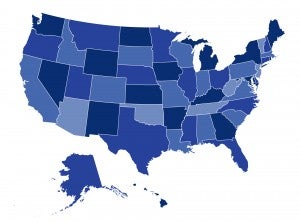The Congressional Budget Office Definition of “Health Insurance” Leaves Room for Wide Coverage Gaps, Discrimination

The nonpartisan Congressional Budget Office (CBO) frequently estimates how policy proposals will affect rates of health insurance coverage. To make these assessments, the agency relies on a definition including coverage that can discriminate against people with pre-existing conditions and fail to cover key health services like prescription drugs, practices that are outlawed in the individual health insurance market under the ACA. CHIR’s Rachel Schwab takes a look at the CBO’s current definition of health insurance, and the impact it has on health insurance reform efforts.



